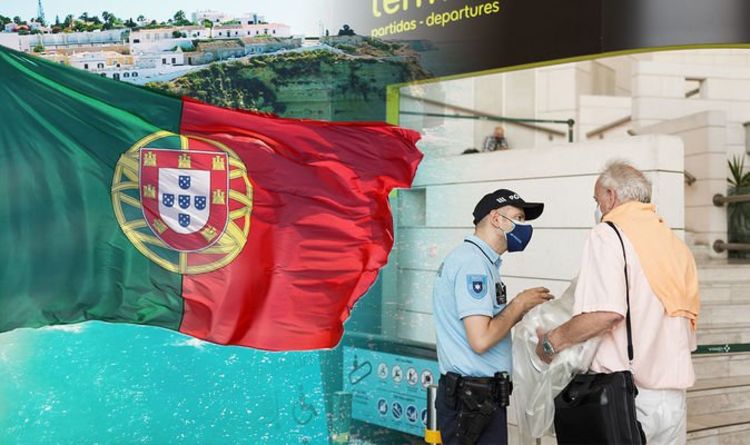Portugal: New travel rules come into force in days – What is the latest FCDO advice?
Michael O'Leary gets confused over Portugal travel rules
We use your sign-up to provide content in ways you’ve consented to and to improve our understanding of you. This may include adverts from us and 3rd parties based on our understanding. You can unsubscribe at any time. More info
Portugal has announced changes to its travel rules, which could see fully vaccinated Britons able to visit the nation using their NHS Covid pass as evidence. Previously, Portugal only recognised the EU Covid pass as proof of vaccination, though from October 1 the nation is set to allow people from select “third countries” to use official Covid passes
The Foreign, Commonwealth and Development Office (FCDO) has not yet confirmed whether or not UK citizens will be included as a “third country”, though its latest update included “information on changes to restrictive measures from 1 October”.
Accepted vaccines in Portugal include Moderna, Pfizer and AstraZeneca – all of which are administered in the UK – as well as Johnson&Johnson.
A statement from the Portuguese Government issued last week reads: “All citizens wishing to travel to Portugal by air, except children under the age of 12, must present the EU Covid Digital Certificate or vaccination or recovery certificate issued by third countries and whose validity is now recognised.”
Until this rule is confirmed and comes into force, Britons must show proof of a negative COVID-19 test before travelling.

The FCDO also notes that the use of EU Covid passes to access certain amenities, such as “hotels, bars and restaurants” could change.
The travel advice states: “Until October 1, be prepared to show your vaccination certificate or a negative COVID-19 test certificate on entry to hotels, restaurants, bars, leisure facilities and at some events.”
As part of the nation’s next step to “unlocking”, restaurant and hotel customers will no longer be required to show vaccination certificates or negative tests for COVID-19, reports The Portugal News.
Vaccine passes will still be required for clubs and bars.
DON’T MISS
Goes back to Brexit’ New passport rules that could block holidays [INSIGHT]
Spain: Costa Blanca hotels fear British testing ‘obstacle’ [COMMENT]
‘Cutest Welsh village’ named one of the prettiest in the UK [AWARD]
What is the latest FCDO advice for Britons travelling to Portugal?
Currently, the FCDO travel advice page holds no new information on whether Britons will be able to avoid pre-departure testing if they hold an NHS vaccine passport when travelling to mainland Portugal.
The most up-to-date advice from the FCDO states: “NHS COVID Pass holders must present a negative COVID-19 test result to enter Portugal.”
Travellers who “do not have an EU digital COVID vaccination certificate showing you have been fully vaccinated with an EU approved COVID-19 vaccine at least 14 days before you travel, or an EU COVID recovery certificate showing you have recovered from COVID-19 no less than 11 days and no more than 180 days of when you are due to travel” must follow some specific entry requirements – including testing.

These include an “antigen test taken within 48 hours of departure, or a RT-PCR test taken within 72 hours of departure”.
Children up to the age of 11 are “exempt” from testing at the time of writing.
Test results should identify the type of test taken and display your name, date of birth, the date and time the sample was collected and the date of the result.
The FCDO warns: “You should not use the NHS testing service to get a test in order to facilitate your travel to another country.”
Passengers must also complete an online passenger locator card to be submitted in the four days prior to arrival.
Britons who meet these requirements are exempt from quarantine.
All UK tourists are advised to remain up-to-date with the latest travel advice before their departure, as rules can change quickly.
The FCDO adds: “No travel is risk-free during COVID.
“Countries may further restrict travel or bring in new rules at short notice, for example, due to a new COVID-19 variant. Check with your travel company or airline for any transport changes which may delay your journey home.
“If you test positive for COVID-19, you will have to self-isolate for 10 days.”
Source: Read Full Article



